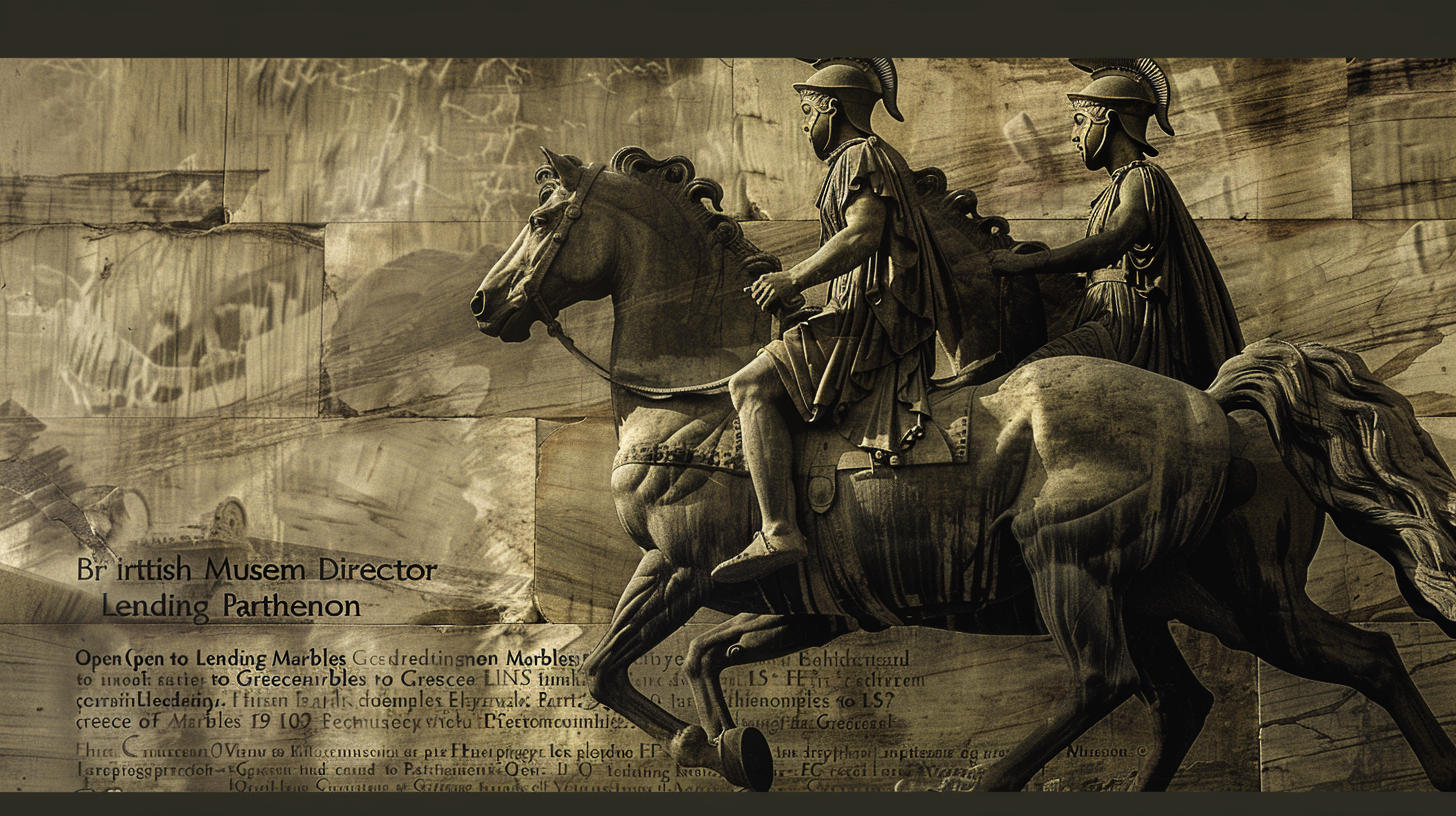
The Future Trends of the Parthenon Marbles Controversy
The controversy surrounding the Parthenon Marbles has been a long-standing debate between Greece and the British Museum. However, a recent statement from Nicholas Cullinan, the director of the British Museum, has hinted at a potential shift in the museum’s stance. This article will analyze the key points of Cullinan’s statement and explore the potential future trends related to this contentious issue.
Cullinan’s Statement and its Significance
In an interview on 18 July on the BBC’s Today programme, Cullinan expressed his hope for a partnership with Greece regarding the Parthenon Marbles. He acknowledged that returning the sculptures to Greece is not possible due to the 1963 British Museum Act, but he emphasized the possibility of a partnership in some form.
This statement is significant as it indicates a potential change in the British Museum’s position on the issue. It suggests that the museum is open to working collaboratively with Greece to find a resolution rather than maintaining a rigid stance of not returning the Marbles.
Potential Future Trends
Based on Cullinan’s statement and the evolving global trends in repatriation of cultural artifacts, several potential future trends can be identified:
- Increasing Pressure for Repatriation
- Shift Towards Collaborative Solutions
- Advancement in Digital Repatriation
- Legislative Changes and Amendments
As awareness of the historical and cultural significance of looted artifacts grows, there is likely to be an increasing pressure on museums to repatriate them. The controversy surrounding the Parthenon Marbles is no exception, with multiple calls from Greece and other countries for their return.
The statement by Nicholas Cullinan reflects a growing trend in the museum sector to find collaborative solutions rather than rigidly holding onto disputed artifacts. Museums are increasingly realizing the importance of sharing cultural heritage and working with the countries of origin to create partnerships and exhibitions.
While physical repatriation of artifacts may not always be feasible, technological advancements provide opportunities for digital repatriation. High-resolution imaging, virtual reality, and online exhibitions can enable countries of origin to showcase and digitally reunite their dispersed cultural objects, mitigating the loss suffered due to colonial looting.
The 1963 British Museum Act is a significant legal hurdle in the repatriation of the Parthenon Marbles. However, there is a growing realization that such legislation may require amendments to accommodate changing attitudes and ethical considerations. This could pave the way for a potential solution in the future.
Predictions and Recommendations
Based on the identified trends, several predictions and recommendations can be made for the future of the Parthenon Marbles controversy:
- Prediction: The British Museum and Greece will enter into discussions for a partnership, possibly leading to joint exhibitions and cultural exchanges.
- Recommendation: The British Museum should actively engage in dialogue with Greece and other relevant stakeholders to explore possible collaborative solutions that respect the cultural heritage and sensitivities of all parties involved.
- Prediction: Technological advancements will enable Greece to digitally repatriate and showcase the Parthenon Marbles, providing a virtual reunification for global audiences.
- Recommendation: The British Museum should consider supporting and participating in digital repatriation initiatives, allowing for greater access and appreciation of the Marbles while preserving the physical collection in London.
In conclusion, the recent statement by Nicholas Cullinan and the evolving global trends in repatriation indicate possible future changes in the Parthenon Marbles controversy. Collaborative solutions, technological advancements, and legislative amendments are key factors that will shape the resolution of this longstanding debate. The British Museum has an opportunity to lead by example and work towards a mutually beneficial partnership with Greece, ensuring the preservation and accessibility of the Parthenon Marbles for future generations.
References:
- Smith, L. (2021, July 18). British Museum may consider lending Parthenon marbles to Greece. The Guardian. https://www.theguardian.com/culture/2021/jul/18/british-museum-considers-lending-parthenon-marbles-greece-nicholas-cullinan
- Project Unrest. (2020). Digital Repatriation. https://www.projectunrest.org/digital-repatriation
- Chatterjee, H. J. (2018). Museums and the Everyday Digital: The Effects of Digitality on Audiences, Organisations and Heritage Paradigms. International Journal of Heritage Studies, 24(4), 341-355.
